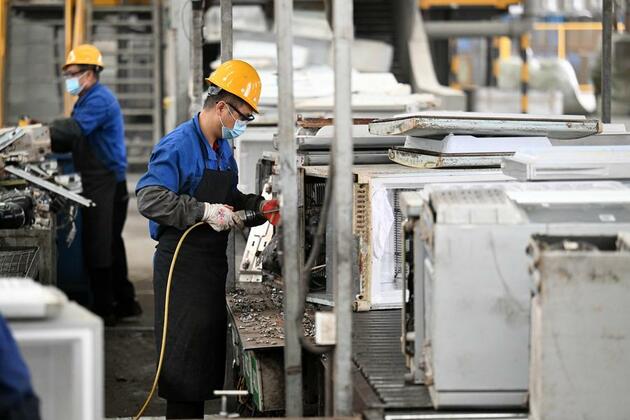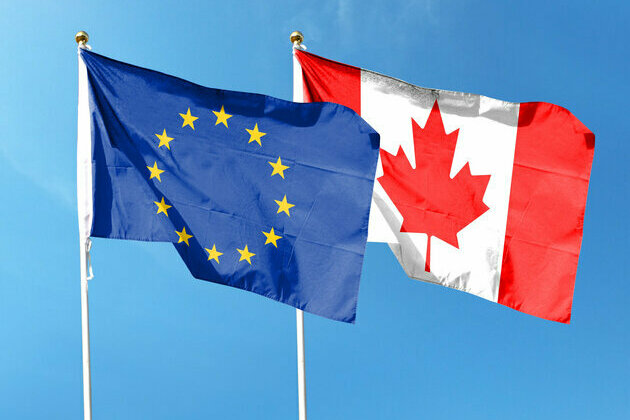Canada's federal election doesn't seem like it's about climate change, but it actually is
The Conversation
15 Apr 2025, 14:10 GMT+10

A defining feature of the ongoing federal election campaign has been the apparent marginalization of the environment and climate change as top-of-mind issues due to threats by the United States against Canadian sovereignty, security and trade.
But how Canada responds to U.S. President Donald Trump's actions will also have profound implications for its future greenhouse gas emissions and its economy.
The current federal election is very different from those held in 2015, 2019 and 2021. In those elections, the environment and climate were central issues. Each time, more than 60 per cent of Canadian voters chose parties (Liberal, NDP, Bloc Quebecois and Green) that advocated for strong climate action, including some form of carbon pricing.
Read more: Canada's federal election made big strides for climate and the environment
The increasing evidence of the consequences of a changing climate had placed the environment and climate change among the leading issues in the minds of Canadians for nearly two decades. The political landscape has shifted dramatically since then.
Although Trump's second presidency is often cited as the trigger point for a decline of the environment as a top-of-mind concern for Canadians, the slide actually began a year earlier, in the fall of 2023.
Despite the record wildfire season that summer, the impact of inflation, triggered in large part by the COVID-19 pandemic and Russia's invasion of Ukraine, moved economic concerns to the forefront of the public's mind. Government stimulus programs needed to counter the impacts of the pandemic contributed to inflationary pressures, prompting the Bank of Canada to hike interest rates in response, adding to Canadians' economic distress.
Amid high inflation and high interest rates, the Liberal government's climate strategies - especially consumer carbon pricing - became an easy political target, particularly for a Conservative opposition with little apparent concern for the climate challenge.
But even though climate change is no longer top of mind for Canadians, it remains a significant embedded concern, with as many as 70 per cent of Canadians believing climate change is real and caused by human activity. And perhaps surprisingly, despite the criticism levelled at the consumer carbon tax, between 60 and 70 per cent of non-Conservative leaning voters (those intending to cast their ballots for Liberal, NDP, Bloc and Green candidates) continue to support the concept of carbon pricing.
Despite this, many political and business leaders have responded to Trump's actions by focusing on natural resource exports, especially fossil fuels and critical minerals, to bolster the Canadian economy.
This has been accompanied by calls to further streamline environmental review and approval processes for resource extraction and export projects like pipelines, and to expand their subsidization by taxpayers.
Discussions about the climate implications of these initiatives have been noticeably absent. So have conversations about the long-term economic viability and desirability of expanding Canada's dependency on resource commodity exports to increasingly uncertain global markets.
On fossil fuels, the International Energy Agency and others are predicting that global consumption will peak within the next decade. This will reflect the falling costs of renewable energy, improving energy productivity and the imperative of reaching net zero greenhouse gas emissions by mid-century.
The peak will likely happen before any new major export infrastructure can be built in Canada, regardless of what review and approval requirements they might be subjected to.
In a world of declining fossil fuel consumption, Canada - increasingly reliant on high-cost and high-carbon production like oilsands crude and fracked and liquified natural gas - seems more likely to be among the earliest producers to fall than among the last standing. Public investments in new export infrastructure look like dubious propositions in this scenario.
Read more: Coal in Alberta: Neither public outrage nor waning global demand seem to matter to Danielle Smith
International markets for critical minerals are likely to remain in deep flux as the pace of technological development in renewable energy and energy storage accelerates to reduce or avoid dependency on costly and difficult-to-access materials.
Mining operations also continue to have substantial environmental impacts with significant implications for reconciliation with Indigenous Peoples in Canada.
All of this means there must be continued meaningful scrutiny of projects in terms of their implications for climate change, environmental sustainability and reconciliation, as well as their economic viability and potential legacy costs for taxpayers - not a further streamlining of review processes.
Falling back on fossil fuels in response to Trump is a fundamentally backwards approach. It ignores the implications of the climate challenge. As recently noted by at least one Canadian business leader, it also overlooks the need to not just diversify Canada's markets, but to diversify Canadian products as well.
Canada must design and implement strategies that transform its industries from producers of low-value raw materials into producers of higher-value products and services for a world that must decarbonize and advance sustainability.
As a coalition of Canadian mayors recently pointed out, climate change remains a real threat to Canadians and their communities. It's not going away regardless of what Trump's executive orders might say.
As they campaign to lead the country, the situation requires more substantive responses from Canada's would-be prime ministers than Canadians are getting right now.
 Share
Share
 Tweet
Tweet
 Share
Share
 Flip
Flip
 Email
Email
Watch latest videos
Subscribe and Follow
Get a daily dose of Calgary Monitor news through our daily email, its complimentary and keeps you fully up to date with world and business news as well.
News RELEASES
Publish news of your business, community or sports group, personnel appointments, major event and more by submitting a news release to Calgary Monitor.
More InformationNorth America
SectionChina expands circular economy to turn waste into wealth
A staff member dismantles discarded refrigerators at a circular economy industrial park of the Tianjin Ziya Economic and Technological...
Indian stock markets end higher on global cues, US tech tariff relief boosts sentiment
Mumbai (Maharashtra) [India], April 15 (ANI): Indian stock markets on Tuesday ended on a strong note, driven by favourable global cues,...
"Hope US, Iran soon reach deal, as economic situation worse than ever": Iranian Nobel Laureate Shirin Ebadi
Dubai [UAE], April 15 (ANI): Iranian Nobel Peace Prize laureate Shirin Ebadi has expressed hope that Iran and the United States will...
Indian and American trade delegations to begin discussions on a Bilateral Trade Agreement this week
New Delhi [India], April 15 (ANI): Indian and American trade delegations are set to begin discussions on a Bilateral Trade Agreement...
Washington is frustrated with European leaders Vance
Politicians are ignoring voters on key issues such as immigration, the US vice president has warned Washington is frustrated by the...
Washington frustrated with European leaders Vance
Politicians are ignoring voters on key issues such as immigration, the US vice president has warned Washington is frustrated by the...
Canada
SectionVladimir Guerrero Jr., Blue Jays bid to bounce back vs. Braves
(Photo credit: Nick Turchiaro-Imagn Images) Toronto Blue Jays first baseman Vladimir Guerrero Jr. has a new, huge contract but no...
Canada's federal election doesn't seem like it's about climate change, but it actually is
A defining feature of the ongoing federal election campaign has been the apparent marginalization of the environment and climate change...
Austin Riley (5 RBIs), Grant Holmes lift Braves over Jays
(Photo credit: Nick Turchiaro-Imagn Images) Grant Holmes didn't allow a hit until the sixth inning, Austin Riley hit two home runs...
Canada is lagging in innovation, and that's a problem for funding the programs we care about
As Canadians prepare to vote in another federal election, the country's economy faces a sobering reality. As the Organization for Economic...
EU, Canada sign agreement on passenger name record data
BRUSSELS, 14th April, 2025 (WAM) - The European Union and Canada have signed an agreement on the transfer and use of Passenger Name...
Rough third day for Indian origin trio at Masters; McIlroy, DeChambeau in title race
Augusta [US], April 14 (ANI): The Indian-origin trio at the 89th Masters had a rough day in the third round of the Masters. After two...












